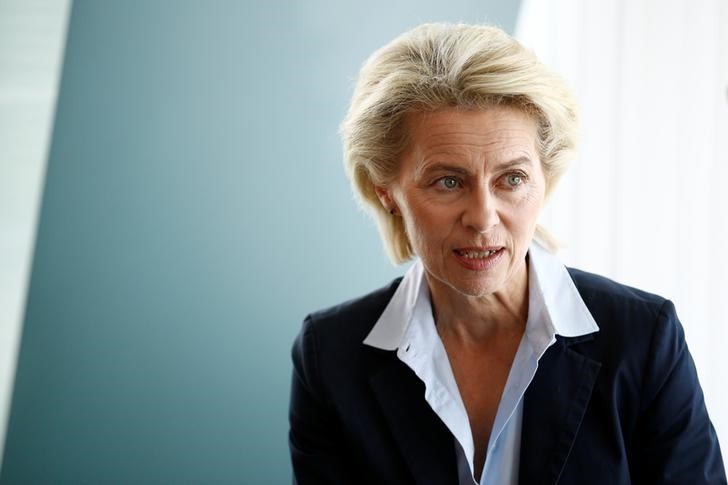(Bloomberg) -- Boris Johnson will have to choose which areas he wants to focus on if he’s to get an agreement on the U.K.’s future relationship with the European Union before his year-end deadline, the European Commission president said.
In her first major intervention on Brexit since she took up her post on Dec. 1, Ursula von der Leyen said the EU is “ready to work day and night” to strike a deal by the end of the year but warned the U.K. prime minister he’ll have to make concessions if he wants comprehensive cooperation. The German official is due to meet Johnson in Downing Street later on Wednesday.
“With every choice comes a consequence, with every decision comes a trade-off,” von der Leyen told an audience at the London School of Economics. “The more divergence there is, the more distant the partnership has to be, and without an extension of the transition period beyond 2020 you cannot expect to agree on every single aspect of our new partnership.”
Despite the desire on both sides to present a clean slate following nearly three years of bad-tempered and tortuous negotiations on the U.K.’s withdrawal from the EU, it’s clear they’re already on collision course. Johnson is to tell von der Leyen that he wants an ambitious free-trade agreement, but not one based on Britain aligning itself to EU rules. His office said he’ll tell her that voters expect negotiations to conclude on time -- by which he means by the end of 2020 when a transition phase is due to end.
After several extensions to the negotiating period since the U.K.’s Brexit referendum in June 2016, the U.K. is finally scheduled to leave the bloc on Jan. 31.
But the next set of negotiations, on the type of relationship the U.K. and EU will have, is likely to be even trickier given Johnson’s tight timeframe and the EU’s red lines. Ultimately, the future agreement should cover areas as diverse as the trade in goods and services, security cooperation, data sharing, fishing quotas and the terms under which European nationals can work in Britain.
In her speech, von der Leyen reiterated a message that the EU has given since even before the first Brexit talks started: the bloc has red lines on which it simply won’t budge.
“Without the free movement of people, you cannot have the free movement of capital, goods and services,” she said. “Without a level playing field on environment, labor, taxation and state aid, you cannot have the highest quality access to the world’s largest single market.”
Johnson’s spokesman James Slack told reporters on Monday that the U.K. would be able to open trade negotiations with other countries, including the U.S., after it has left the EU on Jan. 31. Some of Johnson’s supporters say this will put more pressure on the EU.
“We are ready to design a new partnership with zero tariffs, zero quotas, zero dumping,” von der Leyen said. “A partnership that goes well beyond trade and is unprecedented in scope.”
“We should be optimistic,” she added. “We need to be optimistic.”
